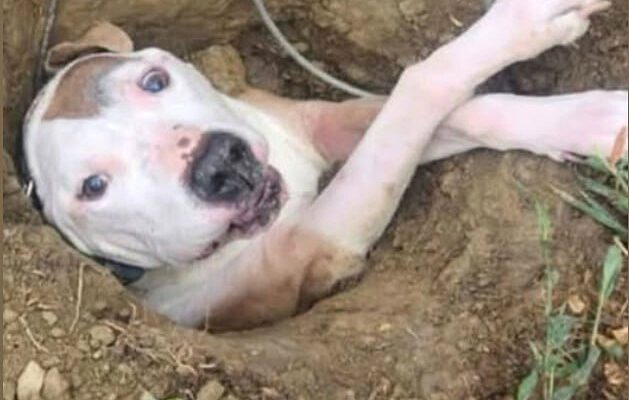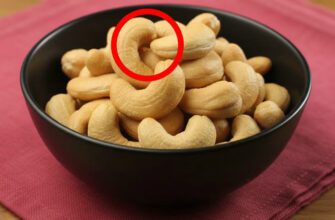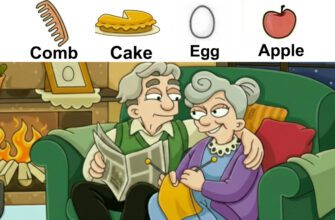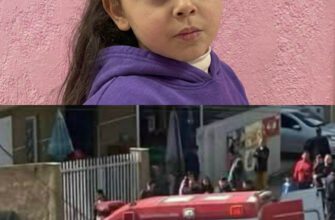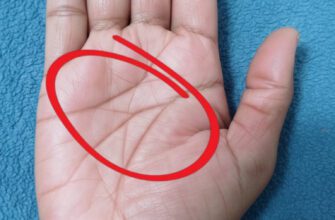…The nippers whistled through the air, flashed and sank into the grey insulation – one, two. The cable was as tight as a trap – it didn’t give in. The man in overalls swore: “It’s optics, damn it…” – and changed the angle. The girl in the vest – Lena – at that moment put her elbow under the dog’s neck, took the loop towards herself to relieve the tension, and quietly, as if whispering to a child before an injection, repeated: “Breathe. I’m holding you. Breathe.” I was kneeling and holding the crumbling earth with my palms so that it wouldn’t fall on my muzzle. The dog looked above us – to where a grey strip of sky hung over the trench, and in his eyes was that very thing that breaks adults: trust in exchange for life.
The nippers crunched. The cable trembled, weakened. And — as if someone had released the emergency brake — the air began to flow in the dog’s chest again. He inhaled loudly, inhaled so deeply that Lena’s fingers seemed to tremble. Three more tugs — and the noose fell apart. And immediately behind the fence there was a cry: “Hey! What are you doing there! This is my Internet! I’ll send you a bill!” The bare-chested man, the owner of the “optics,” shook his fist over the slate. “If you send me a bill, send me one,” the special operator answered without raising his head. “Only to a living person.” We handed Lena a folded sheet, she put a “step” under the dog’s chest, dug under the damp wall with her nails, I felt the ledge with my elbow — and the three of us, like in a slow mountaineering training session, pushed him to the surface. He didn’t resist or help — he just obediently followed our hands to where the sky was whole, not a narrow strip.

He lay on his side on the grass — huge, wet, shaking. There were gray stripes from the cable on his neck, along which the skin was blue. Lena sat down, checked the mucous membranes, eyes, pulse. «We’ll take him,» she said. «The swelling is dangerous. And — yes, sorry — cutting the «optics» was the right thing to do.» Four people carried him to the car: heavy, like someone else’s decision. He waited patiently while we settled him on the blanket, and only once quietly licked Lena’s palm — as if he had signed some important document with her.
The clinic smelled of iodine and dog enemas — that recognizable, strangely homely smell of those who had returned. The doctor, broad-shouldered, with wrinkles around his eyes, took off his stethoscope and looked at us without surprise. As if he had «another one from the trench, medium severity» on his schedule that evening. He put on gloves and carefully felt his neck, then ran his finger along the collarbones, checked his reflexes, listened to his chest.
«Good, strong,» he said. «He’s holding on thanks to adrenaline. The swelling in his larynx may come later. Now he’s on an IV, decongestant, painkiller. There are few cuts, just bruises, scratches. He must not have been there long.» He looked at Lyona: «What shall we call him?» «Nothing yet,» she replied. «Let’s exhale first.»
We exhaled, sitting on stools, warming our palms on mugs of tea. The TV in the hallway was showing an endless «weather forecast for the week,» and against the background of the maps of the fronts, you could hear the quiet drip of life behind the wall: tick… tick… tick. Every tick is a drop in the system, every tick is «stay.» I thought it was strange: sometimes someone is saved not by sirens and flashing lights, but by a neighbor with a net, a guy with wire cutters and a girl who decides that the Internet bill can be paid later. He came to his senses quickly, like people who hold on to their jobs until the very end: «Why are you bringing me here, I’m fine, I still have to go to the pit.» On the third day, he sat down and demanded with a glance the window. On the fourth, he was already getting up to see where Lena had gone. The doctor shook his head: «He’s strong. And he has character.» But that was not what was special. What was special was his initial «security section»: if someone cried in the hall, he turned his muzzle, listened, and in this listening there was a seriousness of the dispatcher, absurd for a dog: «I’m on the line, speak.» We started calling him Plombir — for his white face and this amazing calm, like ice cream in a Soviet waffle cup: everything around him melts, but he holds on. The name stuck, he responded, each time a little surprised, as if he was hearing a tasty word invented especially for him for the first time.
The chip was empty; the collar was old, cheap, without an address tag. We looked for ads — «lost», «found» — silence. The owner actually called for «optics». We were prepared for a scandal with «I’ll show you!» and «we’ll meet in court», but on the other end they suddenly sighed: «Okay, sorry… I got carried away. The guys have already restored everything. If anything, here are two meters of new cable for the shelter.» And they hung up. Sometimes people can also improve — they just need time to pass their own storm.
A week later, Lena suggested: «Will you take him in for a temporary stay? I’m afraid the cage is too small, and he’s delicately built — he needs to breathe nearby.» I took him in. The house greeted us with the usual poor luxury: a rug by the door, a heavy kettle, bread in a towel. Plombir walked through the apartment — unhurriedly, but without fear — and stopped at the table where the nippers were. He poked his nose — and somehow very humanly smiled with his eyes. I put the nippers in the drawer: «No longer needed.» He sighed and lay down — for the first time on his side, stretching out his paws, without a loop and without a pit.
He turned out to be a canine «engineer.» He loved to watch hands — how a bag is tied, how a kettle is turned on, how a lock is fastened. Little by little, we re-learned simple things: to enter the elevator not with a jerk, but with a step; to wait for a bowl when you want to throw yourself right into your palm; not to jump up from the slam of the door (it was neither a tractor nor the edge of the pit). On the street, he chose routes along the fences — the habit of «keeping to the edge» was still close by, but every day it retreated a millimeter.
And yet, the turn did not happen in the yard or at home. It happened on the same street of the partnership where he was found. Lena and I came there to say «thank you» to the people. The pit had already been filled in, the bushes were carefully bent down, the cable was secured. Plombir stopped at the place where the damp clay was sticking out, inhaled, looked at the two of us… and — did what no one expected. He did not lie down, did not «check the walls.» He put his paw on my boot, the other on Lena’s toe, and just like that, with unexpected childish clarity, he laid down. As if he said: «Now I myself choose where my land is. And it is under your feet.»
It took a long time to find a home for him. Not because of his “breed”, not because he was “big”. Because Plombir was like a person who had just left the hospital: outwardly whole, but inside there were a lot of “ifs”. We wrote honestly: “He needs an adult, not one of those who deflate after the first black puddles. He needs someone who won’t abandon him when the old loop kicks in in his head: “you can’t go any further”. There were a decent number of responses – beautiful, loud, with emojis. And one – quiet, without embellishments: “I am Victor, 58 years old, an electrician. I understand what a cable, a loop and someone else’s hole are. I am ready to work”. We met on neutral territory. Victor sat down on a bench, put a belt with a carabiner on his knee – the same one that made Plombir’s eyes twitch for a second in the clinic. But Victor did not drag it out. As an engineer, he first explained: “Look, this is not a loop. This is a connection. She doesn’t strangle, she holds.» And he fastened the carabiner to his belt: «See? First — to himself. And then to you.» Plombir looked, snorted and carefully placed his paw on Viktor’s palm. At that moment I understood that everything would be fine with both of them: they had agreed in their language — without words, but according to the rules.
Now Plombir has a life similar to proper wiring: nothing sparks if you don’t pull it, the light bulb lights up where it should, and you can always turn it off if you’re scared. He goes with Viktor on requests — sits in the car, listens to the radio and once fell asleep listening to «Sports News», which made the repairman laugh terribly. In the evening they return — always — and this «always», I think, is what fixed in him what the noose had once been too tight. He learned to lie on his back; learned to wait at the store without pulling the «connection»; learned to receive guests — first warily, and then with joy.
And sometimes he comes to me. In the kitchen we still keep those very same nippers — like a medal. Plombir always sniffs them, sighs and buries his forehead in my knee. And every time I repeat it out loud to him, like a spell, like a safety instruction, which has only one point:
— If there is a noose around your neck and the ground beneath you — call. We will come.
And I think this is the most important thing this story has taught us. In a country where it is often “not our responsibility” and “wait until Monday,” life still wins where there is a neighbor with a net, a guy with wire cutters, a girl in a vest and a doctor who has “another one from the trench” — but every time like the first. We cannot always save the Internet. But we can always save someone who got entangled in it.
If suddenly in the wind, in the rain, on a Saturday, the most “non-working” hour, it seems to you that somewhere nearby the earth is breathing — stop. Listen. And even if from all sides they say: “you can’t cut,” “there will be a bill,” “wait,” — remember one look from a narrow strip of sky. Sometimes it is worth paying for this look — with everything we can. Because no cable conducts current to the heart more strongly than a simple phrase: “Breathe. I’m holding you.”
➕
